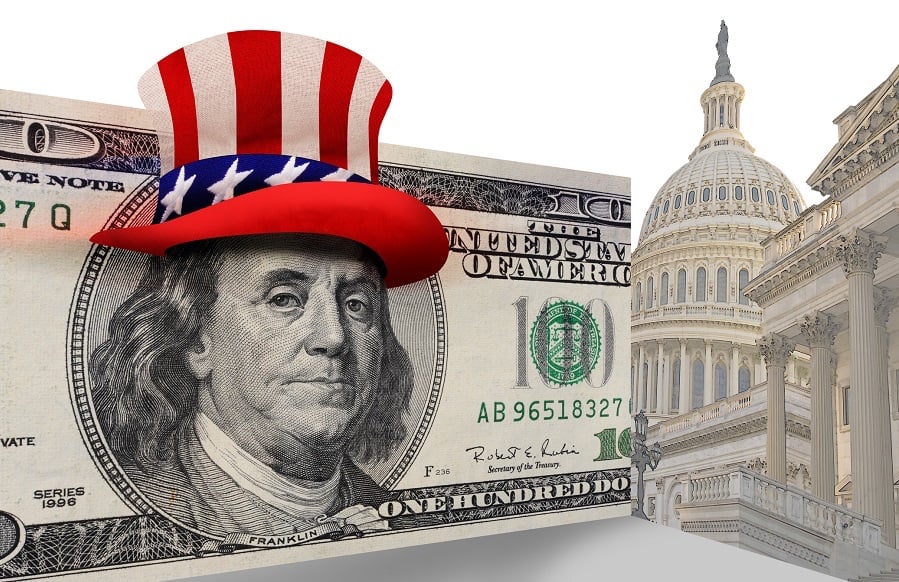

As the calendar moves closer to the midterm elections in November and farther away from the Jan. 6, 2021, insurrection at the U.S. Capitol, political reality is reasserting itself in Washington.
Evidence for this trend can be found in campaign spending by trade associations that represent retail investment advisers and brokers. Most of them have decided to make donations to at least one lawmaker who voted to object to the presidential elections results in Arizona and Pennsylvania.
The country avoided electoral chaos last year because most lawmakers — as well as then-Vice President Mike Pence — fulfilled their constitutional duty to put the 2020 election officially in the books.
The special House committee investigating the Capitol riot will hold its first public hearing Thursday at 9 p.m. It’s too early to reach a conclusion about the state and strength of U.S. democracy.
We can discern, however, that the 147 Republicans who essentially sided with the mob to question the results of the 2020 election and keep then-President Donald Trump in office likely will not face any consequences.
Immediately after the Capitol was stormed, there was speculation about whether the objectors would pay a price in their campaign coffers. Charles Schwab Corp., for instance, shut down its political action committee, ending donations to them and all other lawmakers.
The Investment Adviser Association has not made donations to members of Congress who voted against certifying the presidential results.
But other trade groups have begun to give to the objectors. One reason is that the upcoming election likely will take power away from Democrats, who control the House and Senate by slim margins, and give it to Republicans, as was noted in recent political coverage by Axios.
Trade associations don’t want to be left at the station as the Republican train pulls away.
For example, look at the National Association of Insurance and Financial Advisors’ campaign donations. They have contributed to House Minority Leader Kevin McCarthy (California), House Minority Whip Steve Scalise (Louisiana) and Republican Study Committee Chairman Jim Banks (Indiana). They also contributed to Reps. Jackie Walorski (Indiana), Virginia Foxx (North Carolina) and Barry Loudermilk (Georgia), among other objectors.
McCarthy is poised to be the next Speaker of the House. Scalise and Banks also should be prominent leaders if Republicans take over. Not giving to them could set back NAIFA’s policy agenda next year.
Diane Boyle, NAIFA senior vice president for government relations, said the organization’s candidate selection group reviews potential donation recipients with an emphasis on congressional leaders and members of committees with jurisdiction over financial adviser issues.
“Ultimately, the group makes the disbursement decisions based on the aggregated legislative policy goals of the association,” Boyle said in a statement. “The candidates you listed are incumbent members of leadership or key congressional committees who are supportive of NAIFA positions.”
Making a political donation doesn’t guarantee a lawmaker will support legislation a lobbying group wants. But not donating to one who has written a bill that is right in a group's sweet spot is, well, rude.
For instance, the Insured Retirement Institute and the American Council of Life Insurers have both donated to Rep. Tim Walberg (Michigan), who objected to the 2020 election results. He's also co-author of a bill that would allow annuities to serve as a qualified default investment option in company retirement plans.
“The Insured Retirement Institute has consistently operated a bipartisan, balanced political action committee supporting congressional incumbents who support IRI’s goal of promoting economic equity for America’s workers and retirees, strengthen their financial security, and protect their income to sustain them throughout their retirement years,” IRI spokesperson Dan Zielinski said in a statement.
Anita Ryan, ACLI senior PAC director, said in a statement: “The ACLI PAC has always supported members on both sides, and the issues we focus on have strong bipartisan support.”
The Investment Company Institute, which represents the mutual fund industry and has contributed to a couple of objectors, put it succinctly when it comes to policy being the coin of the realm that influences where campaign coins are allocated.
“ICI PAC supports the campaigns of members of Congress who demonstrate an interest in policy issues affecting registered funds and their shareholders,” ICI spokesperson Stephen Bradford said in a statement.
The Financial Services Institute, which represents independent broker-dealers and financial advisers, pretty much came down in the same place.
“When we paused our PAC donations last year, we worked closely with our Board of Directors to review our guidelines and develop a thorough vetting process that utilizes data to ensure we are giving to those who share our vision, mission and constructive engagement approach,” FSI spokesperson Allison Kuehner Mutschler said in a statement.
The Securities Industry and Financial Markets Association didn't respond to a comment request.
In the embers of the Capitol riot, policy objectives continue to burn brightly for lobbyists and overshadow other considerations, including challenges to democracy.

Relationships are key to our business but advisors are often slow to engage in specific activities designed to foster them.

Whichever path you go down, act now while you're still in control.

Pro-bitcoin professionals, however, say the cryptocurrency has ushered in change.

“LPL has evolved significantly over the last decade and still wants to scale up,” says one industry executive.

Survey findings from the Nationwide Retirement Institute offers pearls of planning wisdom from 60- to 65-year-olds, as well as insights into concerns.
Streamline your outreach with Aidentified's AI-driven solutions
This season’s market volatility: Positioning for rate relief, income growth and the AI rebound
